« Return to all search results
Title Search Results
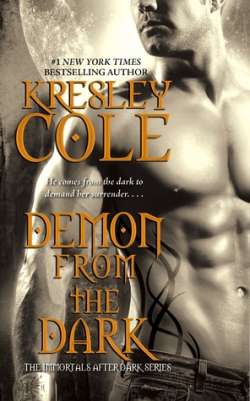
From New York Times bestselling author Kresley Cole comes this scorching tale of a demon outcast poisoned with vampire blood and the vulnerable young witch he vows to protect-even from himself. Malkom Slaine: tormented by his sordid past and racked by vampiric hungers, he's pushed to the brink by the green-eyed beauty under his guard. Carrow Graie: hiding her own sorrows, she lives only for the next party or prank. Until she meets a tortured warrior worth saving. In order for Malkom and Carrow to survive, he must unleash both the demon and vampire inside him. When Malkom becomes the nightmare his own people feared, will he lose the woman he craves body and soul?
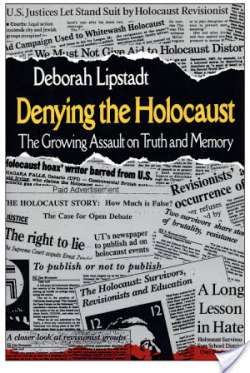
The denial of the Holocaust has no more credibility than the assertion that the earth is flat. Yet there are those who insist that the death of six million Jews in Nazi concentration camps is nothing but a hoax perpetrated by a powerful Zionist conspiracy. Sixty years ago, such notions were the province of pseudohistorians who argued that Hitler never meant to kill the Jews, and that only a few hundred thousand died in the camps from disease; they also argued that the Allied bombings of Dresden and other cities were worse than any Nazi offense, and that the Germans were the “true victims” of World War II. For years, those who made such claims were dismissed as harmless cranks operating on the lunatic fringe. But as time goes on, they have begun to gain a hearing in respectable arenas, and now, in the first full-scale history of Holocaust denial, Deborah Lipstadt shows how—despite tens of thousands of living witnesses and vast amounts of documentary evidence—this irrational idea not only has continued to gain adherents but has become an international movement, with organized chapters, “independent” research centers, and official publications that promote a “revisionist” view of recent history. Lipstadt shows how Holocaust denial thrives in the current atmosphere of value-relativism, and argues that this chilling attack on the factual record not only threatens Jews but undermines the very tenets of objective scholarship that support our faith in historical knowledge. Thus the movement has an unsuspected power to dramatically alter the way that truth and meaning are transmitted from one generation to another.
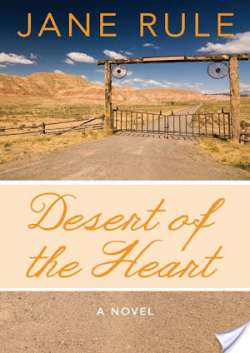
“A landmark work of lesbian fiction.” —The New York Times Jane Rule’s first novel—now a classic of gay and lesbian literature—established her as a foremost writer of the vagaries and yearnings of the female heart Against the backdrop of Reno, Nevada, in the late 1950s, award-winning author Jane Rule chronicles a love affair between two women. When Desert of the Heart opens, Evelyn Hall is on a plane that will take her from her old life in Oakland, California, to Reno, where she plans to divorce her husband of sixteen years. A voluntary exile in a brave new world, she meets a woman who will change her life. Fifteen years younger, Ann Childs works as a change apron in a casino. Evelyn is instantly drawn to the fiercely independent Ann, and their friendship soon evolves into a romantic relationship. An English professor who had always led a conventional life, Evelyn suddenly finds all her beliefs about love, morality, and identity called into question. Peopled by a cast of unforgettable characters, this is a novel that dares to ask whether love between two women can last.
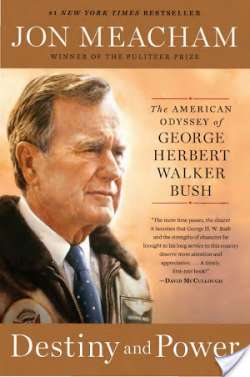
oHe was the last of a kind, and his rise, his fall, and his rebirth in the twilight of his life offers a window on a great deal of American history.o An intimate and detailed life story of a man known only through his politics, or from a distance. From interviews and unprecedented access to Bush's presidential diaries, Meacham brings Bush and the great American family vividly to life, beginning in the Midwest in the late 1800's and on to George H. W. Bush's childhood, his heroic service in World War II, Texas, his political rise. With Meacham's trademark compelling narration, historical depth, and contemporary insight, this stunning biography reveals the unusual self-reflections and distinctive American life of a man from the Greatest Generation who pursued a life of service as a guardian of America in the way of Eisenhower, and was one of the last gentleman in our political world.
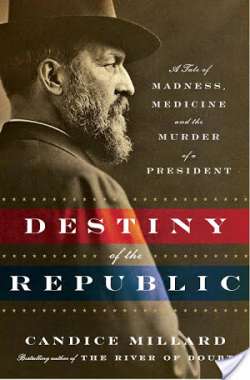
James A. Garfield was one of the most extraordinary men ever elected president. Born into abject poverty, he rose to become a wunderkind scholar, a Civil War hero, and a renowned and admired reformist congressman. Nominated for president against his will, he engaged in a fierce battle with the corrupt political establishment. But four months after his inauguration, a deranged office seeker tracked Garfield down and shot him in the back. But the shot didn’t kill Garfield. The drama of what happened subsequently is a powerful story of a nation in turmoil. The unhinged assassin’s half-delivered strike shattered the fragile national mood of a country so recently fractured by civil war, and left the wounded president as the object of a bitter behind-the-scenes struggle for power—over his administration, over the nation’s future, and, hauntingly, over his medical care. A team of physicians administered shockingly archaic treatments, to disastrous effect. As his condition worsened, Garfield received help: Alexander Graham Bell, the inventor of the telephone, worked around the clock to invent a new device capable of finding the bullet. Meticulously researched, epic in scope, and pulsating with an intimate human focus and high-velocity narrative drive, The Destiny of the Republic will stand alongside The Devil in the White City and The Professor and the Madman as a classic of narrative history.
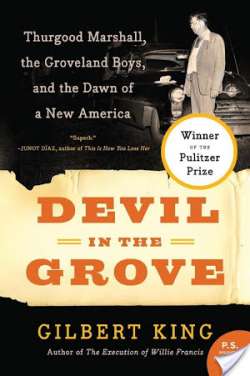
Devil in the Grove, winner of the Pulitzer Prize for general nonfiction, is a gripping true story of racism, murder, rape, and the law. It brings to light one of the most dramatic court cases in American history, and offers a rare and revealing portrait of Thurgood Marshall that the world has never seen before. As Isabel Wilkerson’s The Warmth of Other Suns did for the story of America’s black migration, Gilbert King’s Devil in the Grove does for this great untold story of American legal history, a dangerous and uncertain case from the days immediately before Brown v. Board of Education in which the young civil rights attorney Marshall risked his life to defend a boy slated for the electric chair—saving him, against all odds, from being sentenced to death for a crime he did not commit.
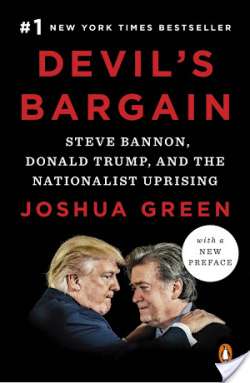
The instant #1 New York Times bestseller. From the reporter who was there at the very beginning comes the revealing inside story of the partnership between Steve Bannon and Donald Trump—the key to understanding the rise of the alt-right, the fall of Hillary Clinton, and the hidden forces that drove the greatest upset in American political history. Based on dozens of interviews conducted over six years, Green spins the master narrative of the 2016 campaign from its origins in the far fringes of right-wing politics and reality television to its culmination inside Trump’s penthouse on election night. The shocking elevation of Bannon to head Trump’s flagging presidential campaign on August 17, 2016, hit political Washington like a thunderclap and seemed to signal the meltdown of the Republican Party. Bannon was a bomb-throwing pugilist who’d never run a campaign and was despised by Democrats and Republicans alike. Yet Bannon’s hard-edged ethno-nationalism and his elaborate, years-long plot to destroy Hillary Clinton paved the way for Trump’s unlikely victory. Trump became the avatar of a dark but powerful worldview that dominated the airwaves and spoke to voters whom others couldn’t see. Trump’s campaign was the final phase of a populist insurgency that had been building up in America for years, and Bannon, its inscrutable mastermind, believed it was the culmination of a hard-right global uprising that would change the world. Any study of Trump’s rise to the presidency is unavoidably a study of Bannon. Devil’s Bargain is a tour-de-force telling of the remarkable confluence of circumstances that decided the election, many of them orchestrated by Bannon and his allies, who really did plot a vast, right-wing conspiracy to stop Clinton. To understand Trump's extraordinary rise and Clinton’s fall, you have to weave Trump’s story together with Bannon’s, or else it doesn't make sense.
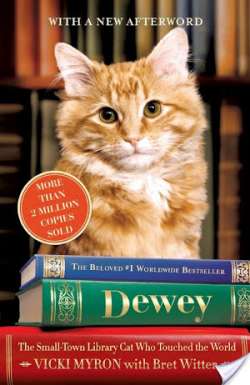
The #1 New York Times bestseller that has sold over 1.2 million copies! Dewey's story starts in the worst possible way. Only a few weeks old, on the coldest night of the year, he was stuffed into the returned book slot at the Spencer Public Library. He was found the next morning by library director Vicki Myron, a single mother who had survived the loss of her family farm, a breast cancer scare, and an alcoholic husband. Dewey won her heart, and the hearts of the staff, by pulling himself up and hobbling on frostbitten feet to nudge each of them in a gesture of thanks and love. For the next nineteen years, he never stopped charming the people of Spencer with his enthusiasm, warmth, humility (for a cat), and, above all, his sixth sense about who needed him most. As his fame grew from town to town, then state to state, and finally, amazingly, worldwide, Dewey became more than just a friend; he became a source of pride for an extraordinary Heartland farming town pulling its way slowly back from the greatest crisis in its long history.
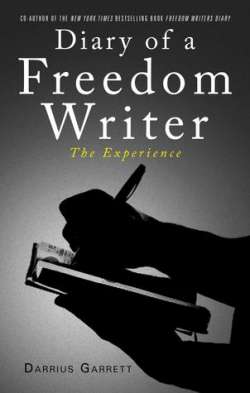
Survivor... a word continuously thought of when reading this memoir. Upon the release of The Freedom Writers Diary and film adaptation starring Hilary Swank in 2007, New York Times bestselling author Darrius Garrett realized that both book and movie tell the Freedom Writer Story as a whole, but not on a personal level. During speaking engagements, the same questions always surface: 'Did Ms. Gruwell change you? How did you make it out of the gang life? What stopped you from killing yourself?' Darrius's answers are inside. Diary of a Freedom Writer takes you on a journey beyond the classrooms to the treacherous streets of Long Beach, California. An innocent little boy born in poverty and raised in a violent environment, Darrius became a product of the streets, written off by the school and judicial systems alike, growing up in an environment full of gangs and drugs. He spent his life searching for a father figure until he became a Freedom Writer, motivational speaker, bestselling author, and finally a father himself. His story is that of a man realizing his experiences are what made him the man he has been seeking to be all his life. Upon beating the odds, Diary of a Freedom Writer serves as proof that Darrius's story of struggle, life, change, and hope will uplift, educate, encourage, and inspire.
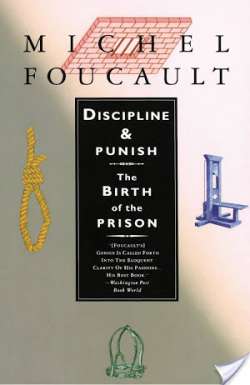
In this brilliant work, the most influential philosopher since Sartre suggests that such vaunted reforms as the abolition of torture and the emergence of the modern penitentiary have merely shifted the focus of punishment from the prisoner's body to his soul.
